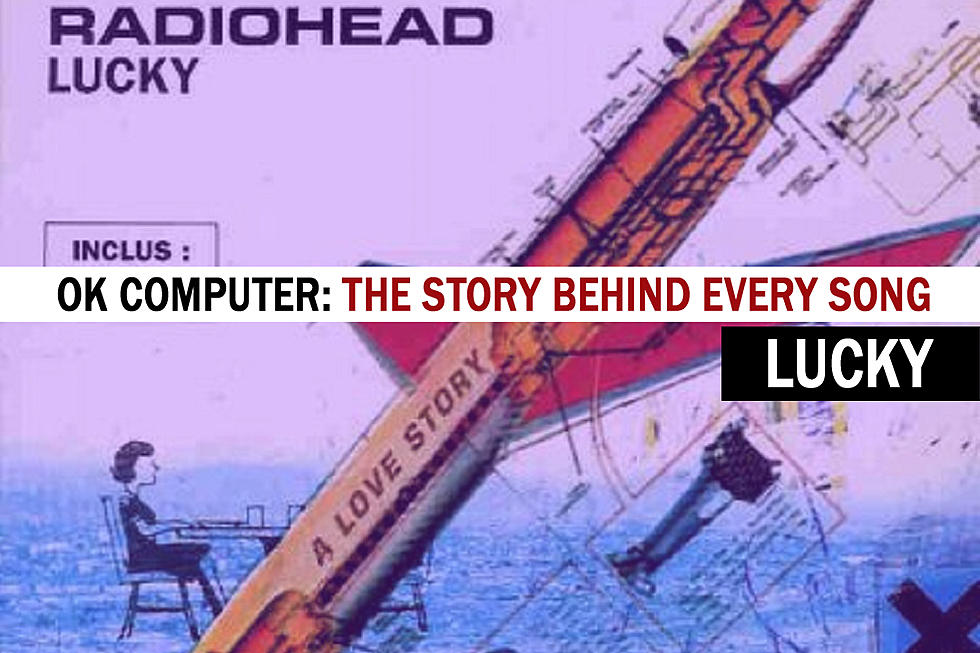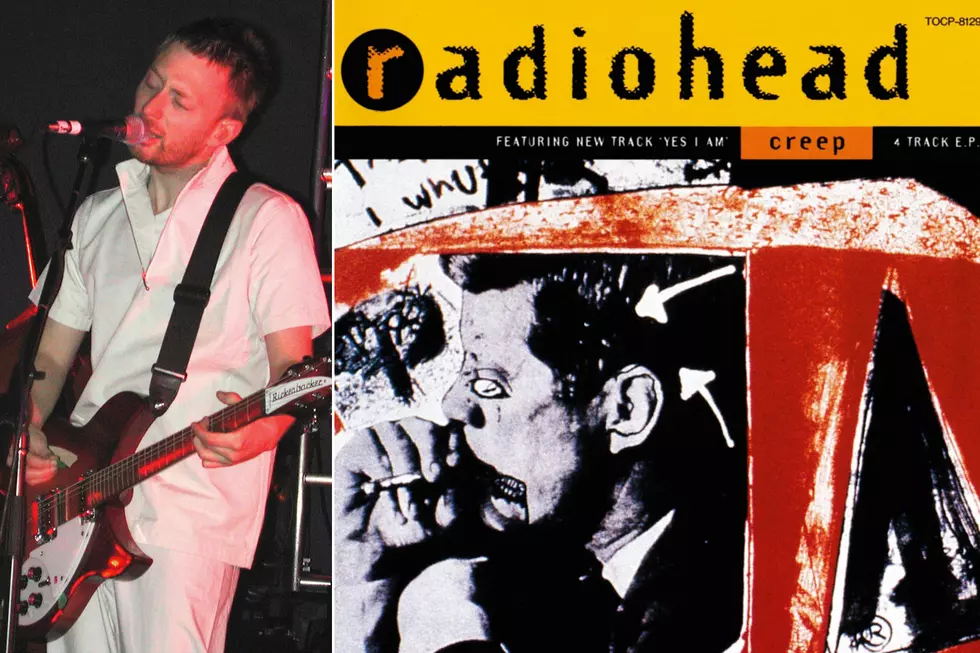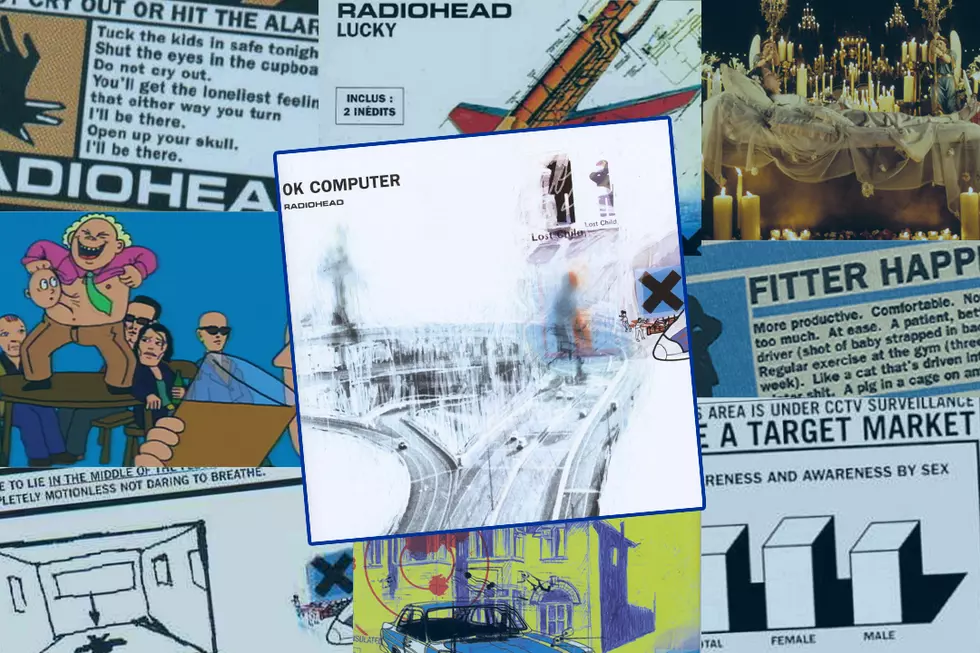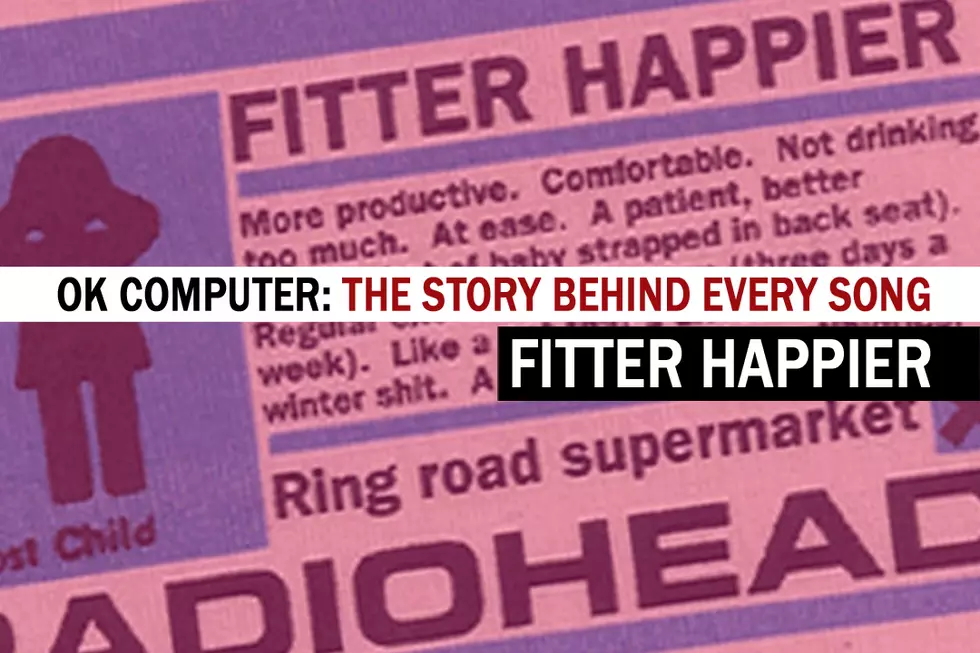
How a Random Soundcheck Moment Led to Radiohead’s ‘Lucky’
In a way, OK Computer began before Radiohead even realized what was going on. In the summer of 1995, the band was on tour to promote their second album, The Bends, when Brian Eno contacted the boys about contributing to a charity album. The organization War Child (which assists children being raised in war-torn regions of the world) was planning a release to support kids affected by the Bosnian war.
Radiohead agreed to participate. They supported the cause, although they were dubious about the recording concept behind the charity disc. For The Help Album, all participants would record their separate tracks on Monday, Sept. 4, 1995. The songs would be mixed on Tuesday and the album would hit shelves on Saturday.
Radiohead rarely worked well under such severe constraints. Other acts might have felt the same way, leading them to record cover versions for their contributions (Suede did “Shipbuilding,” Sinead O’Connor did “Ode to Billie Joe,” Manic Street Preachers did “Raindrops Keep Falling on My Head”). But the boys from Oxford weren’t sure that was the right approach for them.
“We took the hard option and recorded a brand-new song,” guitarist Ed O’Brien told Melody Maker in 1997. “Although, admittedly, that’s only because we’re so bad at covers. Always have been. Even when we were a school band, we couldn’t do them.”
That brand new song was one Radiohead had begun playing on a tour that summer, instigated by a curious noise that O’Brien discovered with his guitar. The band was in Japan when the guitarist hit on a screeching, scraping metallic sound that seemed to hover on the stage.
Hear Radiohead's 'Lucky'
“I remember fiddling around in the soundcheck,” O’Brien recalled. “[We] were in Japan and [I was] putting together a different pedal order and actually hitting the strings above the nut on the headstock. The pedals that I did it with, and the delay that was going on. It was one of those moments – 'Yeah, this is pretty cool.'”
Radiohead began to build a song around that otherworldly sound, eventually creating the soaring ballad “Lucky,” with Thom Yorke singing about an air crash survivor that becomes a superhero and Jonny Greenwood helping the band sound like the new Pink Floyd. On Sept. 4, the group hit the studio with producer Nigel Godrich to get it down for posterity.
The boys were thrilled with the results, from the subject matter to the mellotron “chorus” of voices that sent “Lucky” to the stratosphere. At the time, all five of Radiohead’s members considered it to be the best thing the band had ever done. The people behind War Child felt similarly and released “Lucky” as the lead song on a special EP/single in the U.K. a couple of months later. Although the critics swooned, the public was less than enthralled.
“The record only made it to No. 53 in the English charts though [actually, it hit No. 51],” O’Brien said. “We were ashamed. Our contribution to the good cause didn’t make any money.”
So a couple of years later, Radiohead are putting the last touches on OK Computer when the bandmates start to debate what to do with “Lucky.” Did the song already get its due? Should it be included on a proper album? Would it be better if they remixed it?
It’s likely that the band didn’t want to appear lazy, as if they didn’t have enough material and just slapped “Lucky” on there. Yet all the guys still held the song, and its original recording, in high esteem. When remixes failed to produce intriguing results, Radiohead went with the original recipe.
Between the song’s mix of abrasive noise and classic rock sounds, and its themes of technology, transportation and self-aggrandizement, “Lucky” simply couldn’t be left off OK Computer. It simply dovetailed too perfectly with the other songs (especially “Airbag,” another instance of a human surviving an accident to emerge reborn). The song, which became track 11 on the album, was Radiohead’s first bite (or byte?) out of OK Computer.
“‘Lucky’ was indicative of what we wanted to do,” Yorke said in Exit Music: The Radiohead Story. “It was like the first mark on the wall.”
Radiohead Albums Ranked
More From Ultimate Classic Rock










